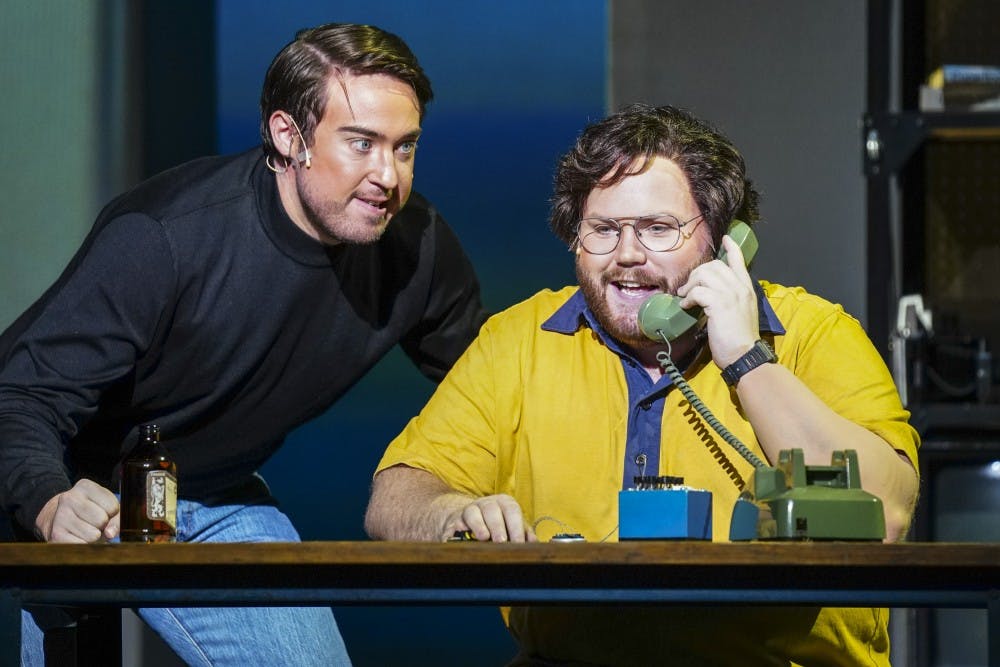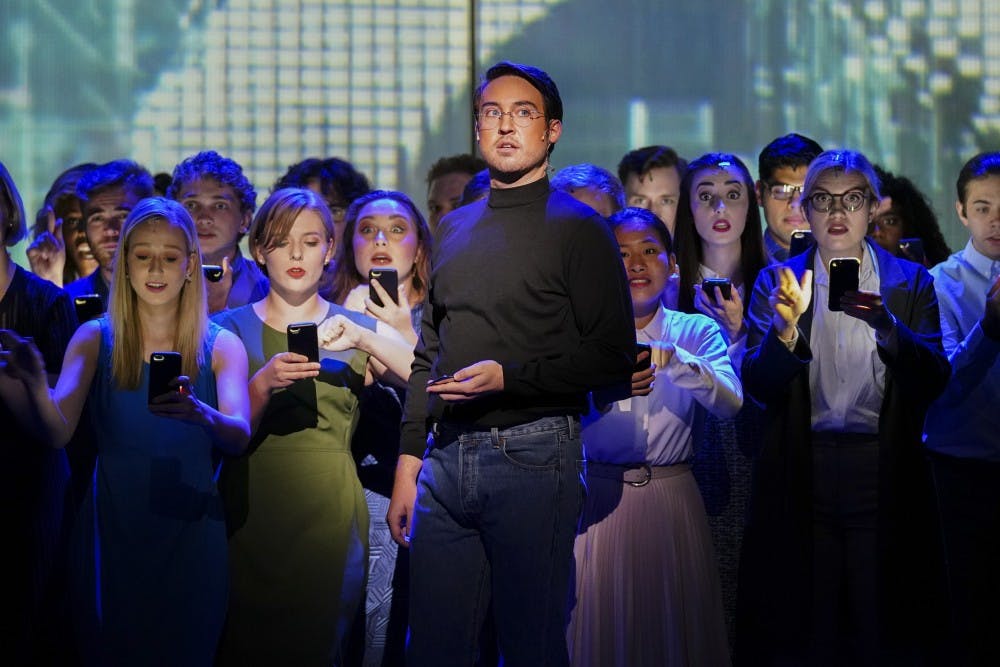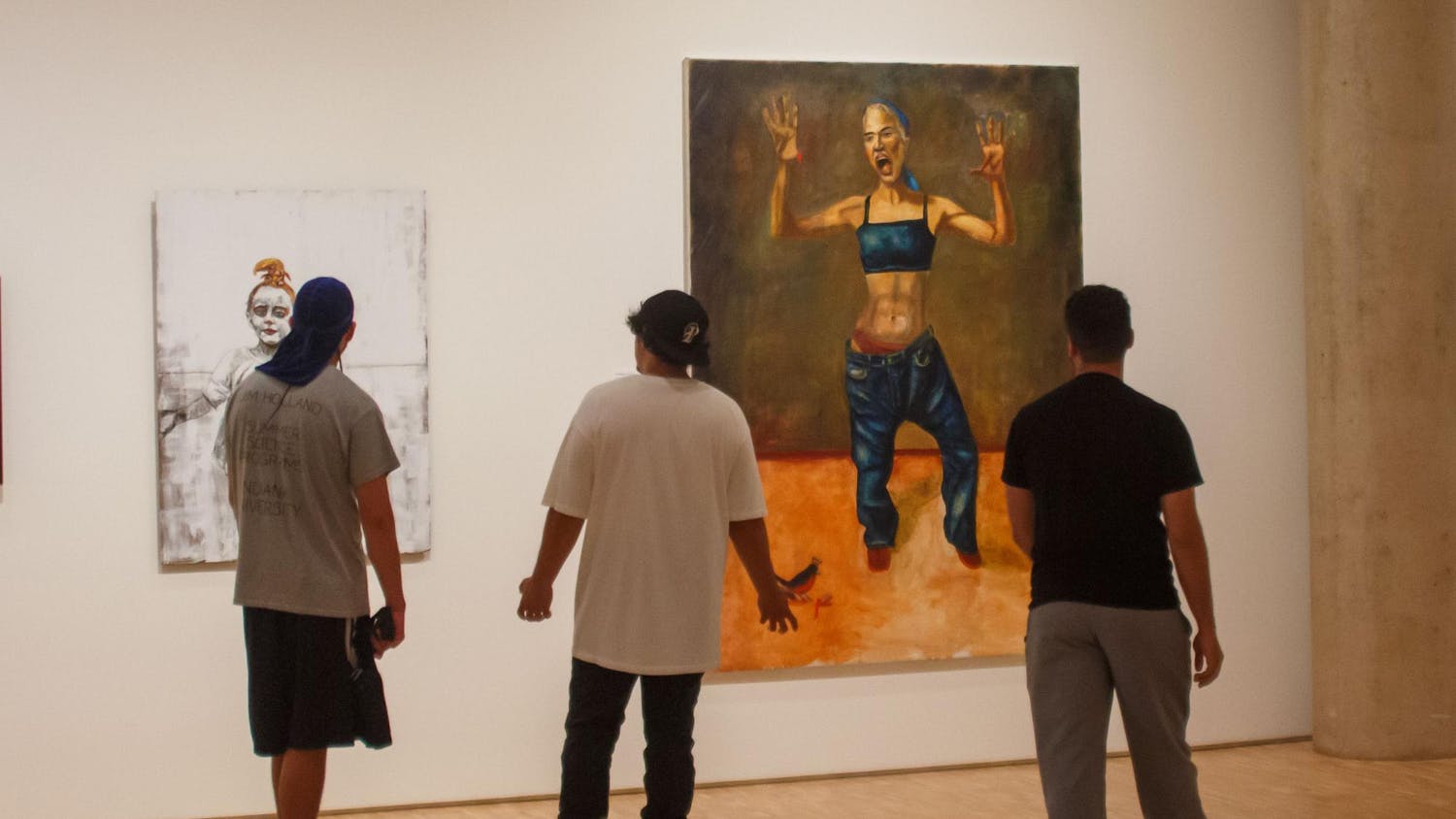“The (R)evolution of Steve Jobs” is an opera which begins with the man responsible for the creation of smartphones telling the audience to put them in their pockets. Jobs wants the viewers to look up. Look out. Look around.
“I like to think of it as an exploration of what genius is, what is its inspiration and how did a man who changed the way we think, how did he interact with people?” director Kevin Newbury said. “How did he think about the world?”
The opera will open at 7:30 p.m. Sept. 14 at the Musical Arts Center. It is a new production for the Jacobs School of Music. Several West Coast theaters are co-producing the play, including the Santa Fe Opera, where it premiered, as well as the Seattle Opera and the San Francisco Opera. Newbury said he first heard of the project over a dinner with his longtime friend, librettist Mark Campbell, who told him he was writing an opera about the iconic entrepreneur.

“As soon as I heard that, I said ‘It’s mine,'" Newbury said. "I want to do it. Don’t talk to anyone else about it. I must direct it."
Days away from their premiere, Newbury shows no signs of stress or worry. He runs around like a kid on a playground, climbing over seats and laughing with the other people around him. As the lights go down and one of their final rehearsals begin, he shouts, “Let’s do this, kids!”
As the title indicates, "The (R)evolution of Steve Jobs” explores how Steve Jobs changed himself and changed the world. It’s a story about love of others and of oneself.
Hollywood hasn’t hesitated to examine Jobs’ life and legacy since his death in 2011, with two movies and a documentary released in the last five years. The rise, fall and rebirth of Jobs, and Apple, have become almost synonymous with their products, but this opera aims to tell a known story in a new way.

“Opera can take you into a much more imaginative place,” Newbury said. “Films are bound to realism. Opera lets you do something much more magical.”
The background of the play consists of gigantic, Kubrick-style, moving monoliths that can seamlessly change their screen from a garage to a lecture hall to a mountain top. This makes the show’s transitions between time periods almost seamless. Moving the screens involves laying down a temporary floor above the old one, along with a silent, hidden team behind the screens. The constant shifting and rearranging of the screens, plus the barrage of lights and music, multiplied by the nonlinear storytelling, equal an opera experience that almost feels more like a dream.
“This piece is indicative of the future of opera” Jeremy Weiss, the performer who plays Jobs, said. “It’s incredible technology. The production design is insane. It looks so cool.”
After Ashton Kutcher and Michael Fassbender gave their cinematic portrayal of Jobs, Jacobs School of Music students, Weiss and Edward Cleary, are the newest performers to step onto the stage and into the turtleneck.
“It’s fun to play a character that is so powerful," Weiss said. "I love singing this music. As a student here, we’re so lucky to be brought a brand-new opera. I’m the second person ever to play this role.”
The opera explores Jobs’s turbulent relationships and the public denouncement of his first daughter. Throughout the show he is called an “S.O.B.,” a “freak” and “a brilliant man.” Newbury has given numerous notes to his dueling lead actors on how best to embody the icon. He says it’s all about the charisma.
“There’s a line where they say Jobs was always trying to do one of three things: seduce you, vilify you or ignore you,” Newbury said. “That’s his character to me.”




